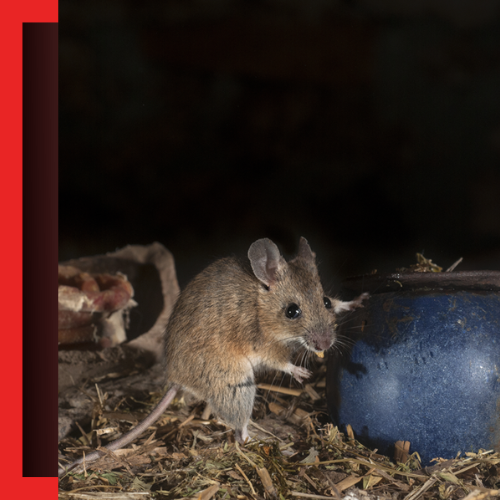The word "rodent" can send a shiver down your spine, and put fear in your mind, depending on which animal is invading your space. Despite the enormous variety, they have certain things in common. Their annihilative tendencies, burrowing expertise, and affinity for spreading diseases make them very dangerous.
When people think of rodents, they naturally picture rats and mice. Squirrels, chipmunks, beavers, and voles also fall into this group of destructive animals. They are known to infest and ravage homes and businesses, mar gardens, level crop fields, and wreck food storage. Rats destroy about a fifth of the world's agricultural products each year.
The most common types of rats in Michigan are the Norway Rat and the Roof Rat. These creatures tend to grow 12-18 inches long and Roof Rats tend to be on the smaller end of the scale. The critters have litters twice a year and can have as many as a dozen pups each time.
Squirrels alone have nine different species in Michigan. The animals are incredibly adaptable and have a varied diet. Many people worry about squirrels sneaking into their bird feeders, but that's the least of your problems. They can find their way into attics, walls, and more, contaminating insulation and chewing through wood and wire. Over time, that can cause structural damage and even electrical fires.
Nutria is now on Michigan's invasive species watchlist. They are gigantic beasts, often reaching two feet long and growing to 14 pounds. Also called coypu, the animals are considered semi-aquatic, and have a habit of rooting and digging that erodes habitat. If you do see one, please take a picture, note the location, and report it to ww.michigan.gov/invasivespecies. An interesting fact for you, they have orange teeth.
Groundhogs burrow through yards and sneak in under homes, while beavers chew through wood and destroy local fauna. Their dams can cause flooding. These nuisances carry and spread more than 35 diseases. Direct contact with them is not necessary to become infected.
Hantavirus, for example, gets into our bodies through rodents' dried droppings, urine, and saliva that's left behind as they scurry through your home. Because they use urine as a chemical form of communication, rats are continually urinating. At first, Hantavirus infections feel like the flu, but can shift to major respiratory issues quickly. People trying to clean up their homes are often infected with the disease, exemplifying why it's so important to turn to a pest control professional when you suspect a rodent infestation.
At Stratex Pest Control, we're proud to call ourselves the #1 pest control company in Southwest Michigan. We keep that title by dedicating our time to ensuring our customers can rest easy knowing their property is safe in our hands. We're locally-owned and operated, allowing us more time to dedicate our effort and compassion to each client. You are not just a number as happens so often with big corporations. Our licensed and certified technicians will work with you to find the best pest control solution for your particular circumstance. Call us today.


